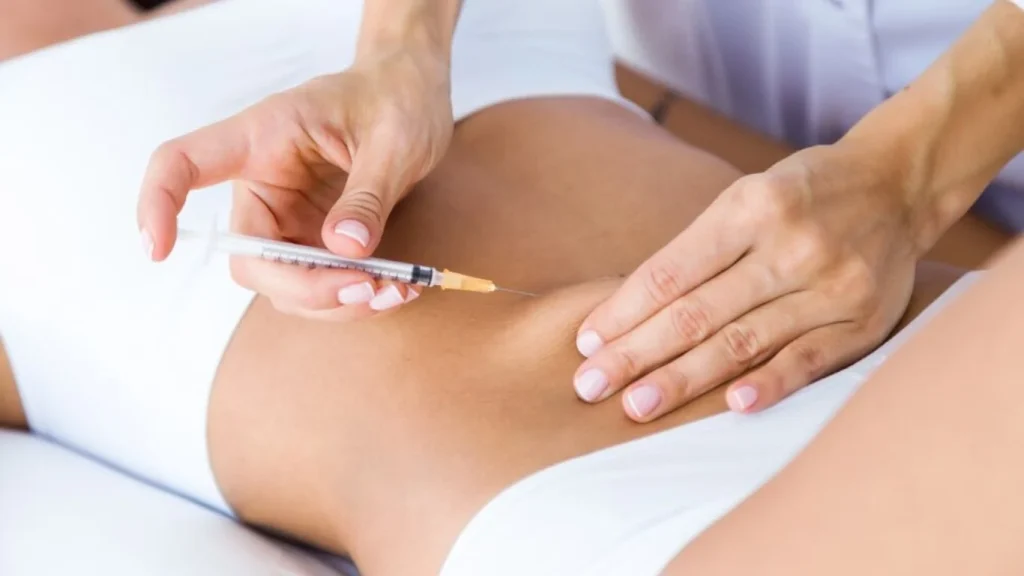Introduction
Weight loss is a significant achievement, but it may leave behind loose or sagging skin, especially around the stomach area. This guide explores effective and realistic strategies to tighten stomach skin after weight loss.
Understanding the Skin and Weight Loss Connection
Factors Influencing Skin Elasticity
Skin elasticity is influenced by factors such as age, genetics, and the rate at which weight loss occurs. Understanding these factors helps set realistic expectations.
Realistic Expectations
While certain strategies can improve skin tightness, it’s essential to have realistic expectations. Extreme weight loss may lead to more significant skin laxity, requiring a combination of approaches.

Read More About: How to Flush Medication from Your Body
Stay Hydrated for Skin Health
Water’s Role in Skin Elasticity
Proper hydration is vital for skin health. Water helps maintain elasticity, and hydrated skin is less prone to sagging. Aim for the recommended daily water intake for optimal results.
Hydration Tips
Incorporate hydrating foods like watermelon and cucumber into your diet. Additionally, use a moisturizer to keep your skin hydrated externally, complementing internal hydration.

Incorporate Strength Training
Building Muscle for Skin Support
Strength training builds muscle, providing a supportive structure for the skin. Include exercises targeting the abdominal muscles to enhance core strength and tighten the skin.
Targeted Abdominal Exercises
Focus on exercises like planks, leg raises, and abdominal crunches. These exercises engage the core muscles, contributing to a firmer stomach appearance.

You May Know More About: How to Prevent a Hernia from Getting Worse
Include Skin-Friendly Nutrients in Your Diet
Collagen-Boosting Foods
Collagen is crucial for skin elasticity. Incorporate collagen-boosting foods like bone broth, fish, and collagen supplements into your diet.
Vitamins and Minerals for Skin Health
Ensure your diet includes vitamins A, C, and E, along with zinc and selenium. These nutrients support skin health and may contribute to improved elasticity.

Use Skin-Tightening Creams and Lotions
Ingredients to Look For
Look for creams containing ingredients like retinol, hyaluronic acid, and collagen. These components can promote skin firmness and hydration.
Application Tips
Apply skin-tightening creams consistently and as directed. Massage the product into the skin using upward motions to enhance absorption and stimulate circulation.

Explore Non-Invasive Procedures
Radiofrequency Therapy
Radiofrequency therapy stimulates collagen production through heat. Non-invasive devices can be used to tighten skin and improve its overall appearance.
Ultrasound Therapy
Ultrasound therapy targets the deeper layers of skin, triggering collagen production. This procedure is often used to lift and tighten sagging skin.

Consider Professional Skin Treatments
Laser Therapy
Laser treatments can address skin laxity by promoting collagen production. Fractional laser therapy is a popular choice for stimulating skin tightening.
Surgical Options
In cases of significant skin laxity, surgical procedures like abdominoplasty (tummy tuck) may be considered. Consult with a plastic surgeon to discuss the best options for your situation.

Read Also: How to Talk to Your Doctor About ADHD
Mindful Weight Loss and Maintenance
Gradual Weight Loss
Losing weight gradually allows the skin to adapt more effectively. Rapid weight loss increases the risk of loose skin.
Maintaining a Stable Weight
Maintain a stable weight after achieving your weight loss goals. Fluctuations in weight can contribute to skin laxity over time.

Real Stories of Successful Skin Tightening
Personal Journeys
Explore stories of individuals who successfully tightened their stomach skin after weight loss. Their experiences offer insights and motivation for those on a similar path.
Practical Insights
Learn from practical tips shared by individuals who navigated the challenges of loose skin. Their strategies may provide actionable steps for improving skin tightness.

When to Consult a Professional
Persistent Skin Issues
If despite your efforts, skin laxity persists, consult with a dermatologist or plastic surgeon. They can assess your situation and recommend tailored treatment plans.
Customized Treatment Plans
Professionals can create customized plans based on your unique needs. This may include a combination of non-invasive procedures, skincare routines, and, if necessary, surgical interventions.

Conclusion
Tightening stomach skin after weight loss is a gradual process that requires a combination of lifestyle changes, skincare, and, in some cases, professional interventions. By adopting a holistic approach, individuals can enhance skin elasticity and achieve a firmer, more toned abdomen.
